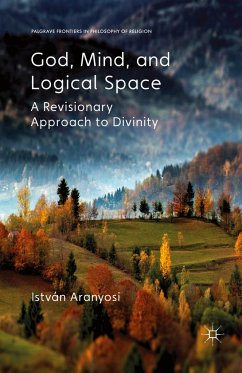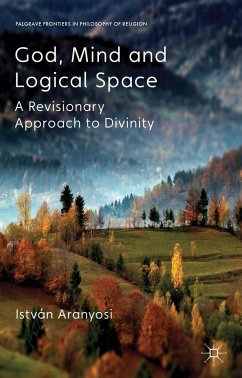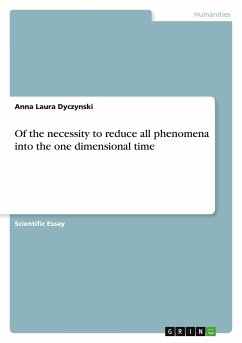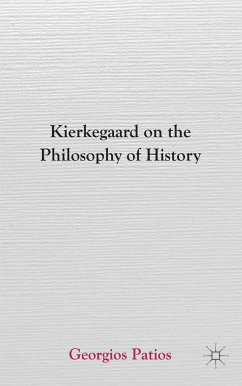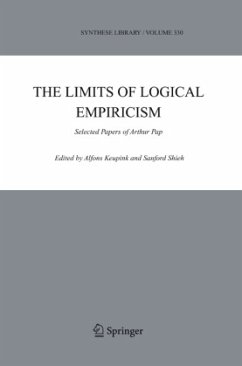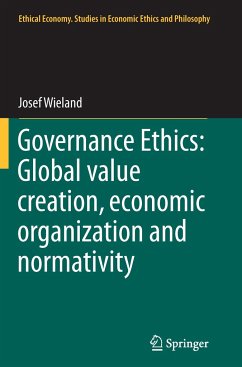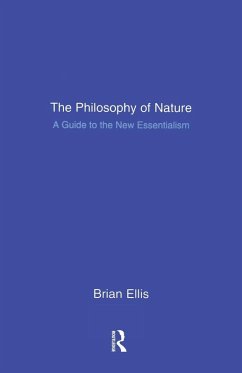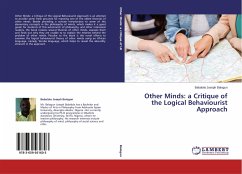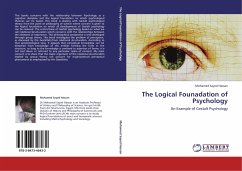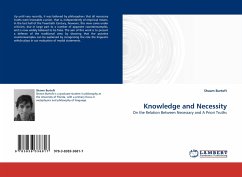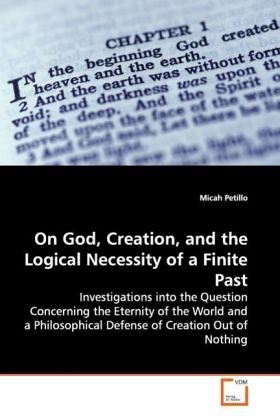
On God, Creation, and the Logical Necessity of a Finite Past
Investigations into the Question Concerning the Eternity of the World and a Philosophical Defense of Creation Out of Nothing
Versandkostenfrei!
Versandfertig in 6-10 Tagen
39,99 €
inkl. MwSt.

PAYBACK Punkte
20 °P sammeln!
The classical understanding of creation out of nothing has traditionally held that God's creation of the universe had to involve a moment of temporal initiation. However, in attempting to understand the essence of creation by appealing solely to the distinction between the ontological necessity of the Creator and the ontological contingency of the created, many philosophers and theologians have contributed to the eclipse of this feature of the classical notion. This book examines the primacy and sufficiency of that distinction. Finding this distinction, by itself, to be injurious to the classi...
The classical understanding of creation out of
nothing has traditionally held that God's creation
of the universe had to involve a moment of temporal
initiation. However, in attempting to understand the
essence of creation by appealing solely to the
distinction between the ontological necessity of the
Creator and the ontological contingency of the
created, many philosophers and theologians have
contributed to the eclipse of this feature of the
classical notion. This book examines the primacy and
sufficiency of that distinction. Finding this
distinction, by itself, to be injurious to the
classically conceived Judeo-Christian God, it argues
that the concept of creation out of nothing must
also incorporate the idea of temporal initiation.
Therefore, an investigation into the question of the
eternity of the world is paramount to its success.
Following historical and systematic examinations of
this question, it concludes with a meditative
reflection that attempts to ground a method for
clarifying divine creation in subjective experience,
rather than in objective theory, due to the
irreconcilable incongruities that seem to result
from the purely rational approach.
nothing has traditionally held that God's creation
of the universe had to involve a moment of temporal
initiation. However, in attempting to understand the
essence of creation by appealing solely to the
distinction between the ontological necessity of the
Creator and the ontological contingency of the
created, many philosophers and theologians have
contributed to the eclipse of this feature of the
classical notion. This book examines the primacy and
sufficiency of that distinction. Finding this
distinction, by itself, to be injurious to the
classically conceived Judeo-Christian God, it argues
that the concept of creation out of nothing must
also incorporate the idea of temporal initiation.
Therefore, an investigation into the question of the
eternity of the world is paramount to its success.
Following historical and systematic examinations of
this question, it concludes with a meditative
reflection that attempts to ground a method for
clarifying divine creation in subjective experience,
rather than in objective theory, due to the
irreconcilable incongruities that seem to result
from the purely rational approach.



